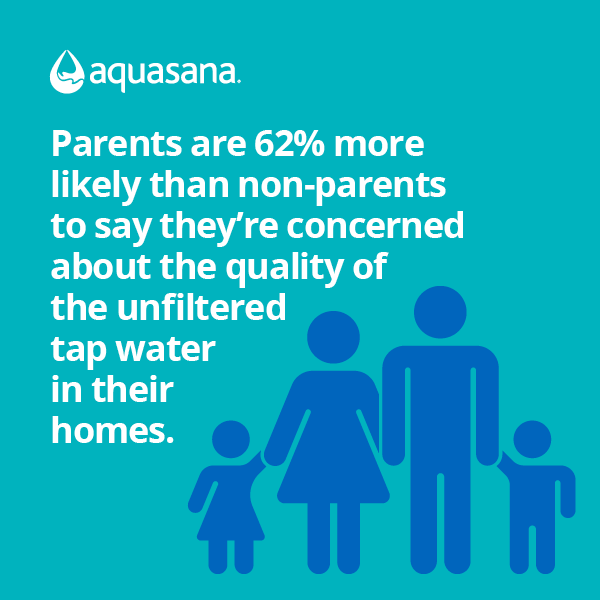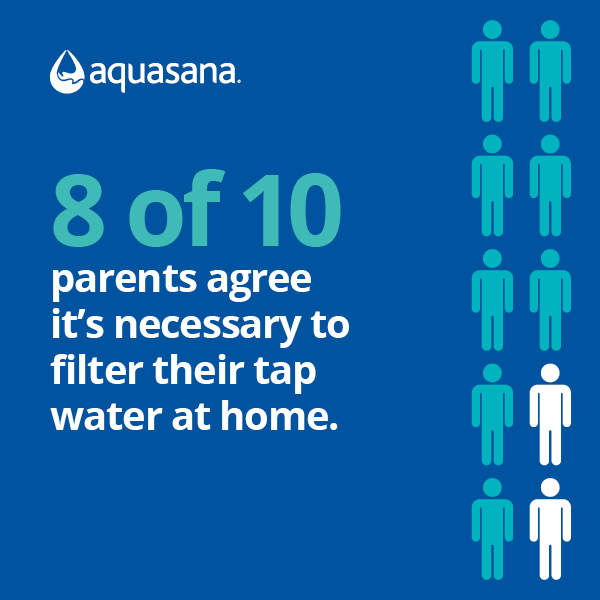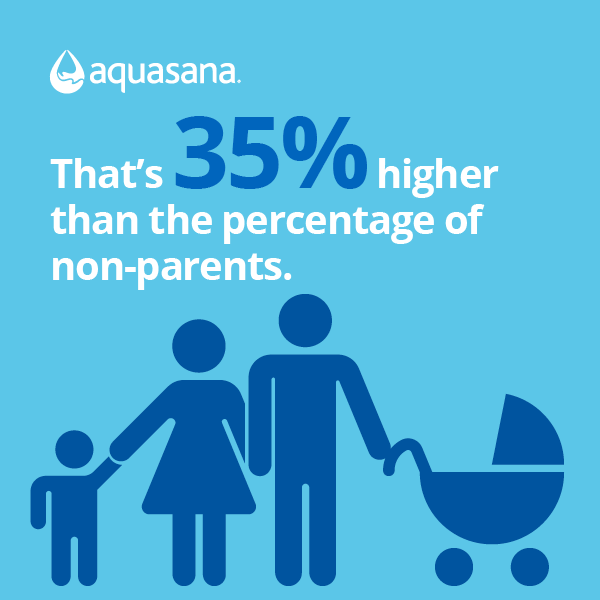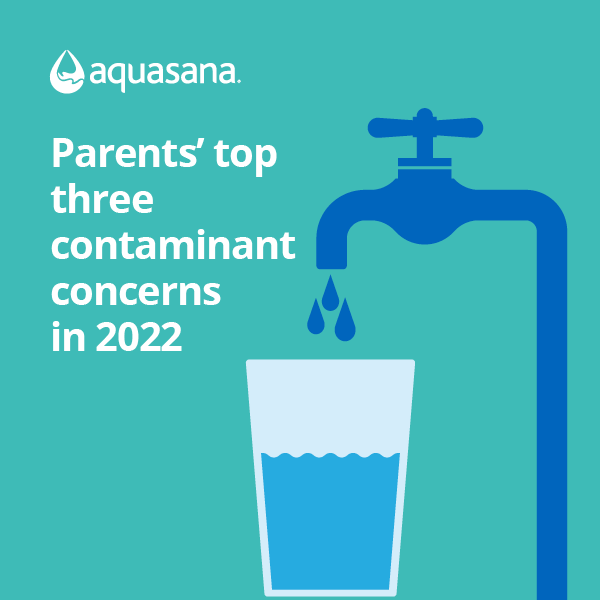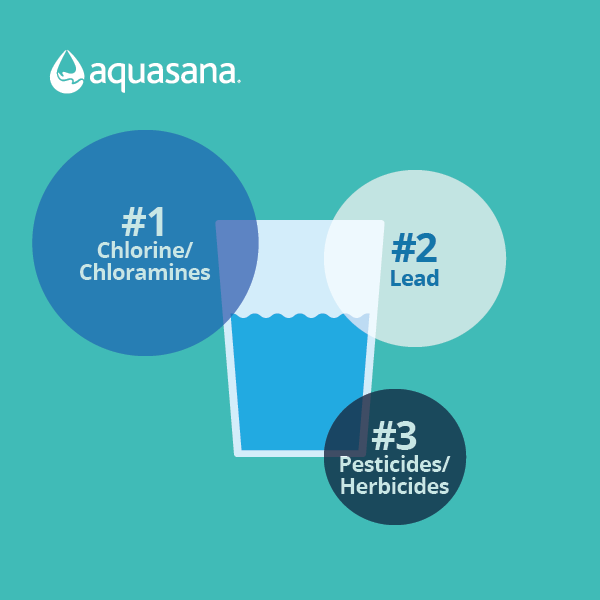Conclusion
Overall, our 2022 survey revealed that parents are consistently more concerned and more willing to take action regarding water quality issues compared to non-parents. This is a growing trend with concern consistently rising over the past several years and will likely continue moving forward. We’re nearly at a point where nearly 9 of 10 parents filter their water at home, and a growing percentage are becoming concerned about the quality of water at their childrens’ schools.
However, we’ve determined that water quality isn’t the only reason for the increasing usage of filters. Many parents are using filters because they’re environmentally friendly, and for some, filtering water has always been common practice throughout their lives.
Whether you’re looking to improve the quality and safety of your tap water or want to switch from plastic bottles to help the environment, Aquasana has a wide selection of filters to choose from. All Aquasana filters have been independently tested and certified to NSF/ANSI standards to tackle the contaminants listed in this blog post. Our award-winning, eco-friendly filtration systems have also been designed with sustainability in mind to help minimize waste.
Check out our selection of filters to find your perfect solution and start enjoying healthier, better-quality water!
Survey methodology and definitions
The findings presented in this article are the result of a March 2022 study of 2,246 U.S. adults, conducted by Aquasana. (Confidence Level: 95%, Margin of Error: 2%)
Age Cohorts (based on Pew Research)
- Baby Boomers: 1946-64
- Gen X: 1965-80
- Millennials: 1981-96
- Gen Z: 1997-2012
Regions (based on U.S. Census map)
- Northeast: Maine, Massachusetts, New Hampshire, New Jersey, New York, Pennsylvania, Rhode Island, Vermont, Connecticut
- Midwest: Illinois, Indiana, Iowa, Kansas, Michigan, Minnesota, Missouri, Nebraska, North Dakota, Ohio, South Dakota, Wisconsin
- South: Alabama, Georgia, Kentucky, Louisiana, Maryland, Mississippi, North Carolina, Oklahoma, South Carolina, Arkansas, Tennessee, Texas, Virginia, West Virginia, Delaware, Florida
- West: Idaho, Alaska, Montana, Nevada, Arizona, New Mexico, Oregon, Utah, Washington, Wyoming, California, Colorado, Hawaii
Urban, Suburban, and Rural classifications were self-reported.
